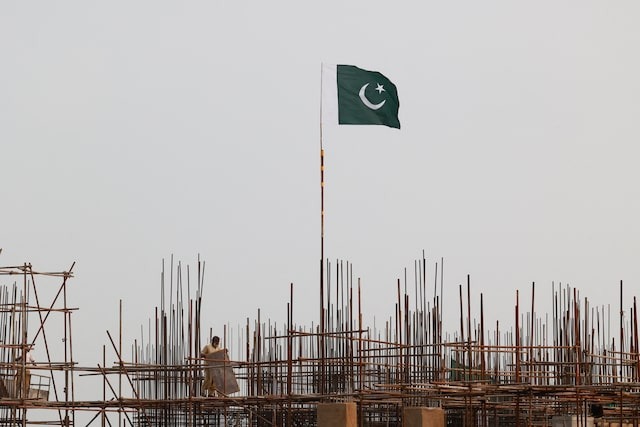- Joined
- Jan 25, 2024
- Messages
- 111,139
- Likes
- 867
- Nation

- Residence

Pakistani Nuclear tipped Missiles: A Threat to India
Pakistan is considered as a country having most sophisticated missile technology in the world. Starting from Hatf-IV, which is a short range missile, to Babur-III Submarine Launch Cruise Missile, Pakistani missiles are a continuous threat to it’s arch rival, India. These missiles serves a symbol of deterrence. Combination of these missiles with nuclear warheads have a capability to strike deep inside India.
Here a list of all nuclear tipped missiles is given:
Hatf-I
Hatf-II (Abdali)
Hatf-III (Ghaznavi)
Hatf-IV (Shaheen-I)
Hatf-IV (Shaheen-IA)
Hatf-V (Ghauri)
Hatf-VI (Shaheen-II)
Shaheen-III
Babur-1A
Babur-III
Hatf-VIII (Raad-II)
Hatf-IX (Nasr)
Pakistan is considered as a country having most sophisticated missile technology in the world. Starting from Hatf-IV, which is a short range missile, to Babur-III Submarine Launch Cruise Missile, Pakistani missiles are a continuous threat to it’s arch rival, India. These missiles serves a symbol of deterrence. Combination of these missiles with nuclear warheads have a capability to strike deep inside India.
Here a list of all nuclear tipped missiles is given:
Hatf-I
- Type: Short-range ballistic missile
- Launch platform: transport erector launcher (TEL)
- Range: 80-100 Kilometers
- Warhead: 500 kilograms
- Fuel: solid
- Stage: single
- Origin: SUPARCO
Hatf-II (Abdali)
- Type: Short-range ballistic missile
- Launch platform: transport erector launcher (TEL)
- Range: 180 Kilometers
- Warhead: 450 kilograms
- Fuel: solid
- Stage: single
- Origin: SUPARCO & NESCOM
Hatf-III (Ghaznavi)
- Type: Short-range ballistic missile
- Launch platform:
- Range: 290 kilometers
- Warhead: 700 kilograms
- Launch weight: 4650 kilograms
- Fuel: solid
- Origin: PMO & NESCOM
Hatf-IV (Shaheen-I)
- Type: Short-range ballistic missile
- Range: 750 kilometers
- Warhead: 850 kilograms
- Fuel: Solid
- Origin: NDC & NESCOM
Hatf-IV (Shaheen-IA)
- Type: medium-range ballistic missile
- Range: 900 kilometers
- Warhead: 700-1000 kilograms
- Fuel: Solid
- Origin: NDC & NESCOM
Hatf-V (Ghauri)
- Type: Medium-range ballistic missile
- Range: 1300 kilometers
- Launch platform: Transport Erecter Launcher (TEL)
- Warhead: 700 kilograms (Conventional/Nuclear)
- Fuel: liquid
- Stage: single stage
- CEP: Below 100 meters
- Origin: KRL & NESCOM
Hatf-VI (Shaheen-II)
- Type: Medium range ballistic missile
- Range: 1500 kilometers
- Origin: NESCOM & NDC
- Fuel: solid
- Stage: 2 stages
Shaheen-III
- Type: Medium-range ballistic missile
- Range: 2750 Kilometers
- Fuel: solid
Babur-1A
- Type: Ground Launch Cruise Missile
- Range: 450 kilometers
- Fuel: solid
- Origin: NDC & NESCOM
Babur-III
- Type: Submarine Launched Cruise Missile
- Launch platform: Agosta 90-B (Khalid-class submarines)
- Range: 450 kilometers
- Fuel: solid
Hatf-VIII (Raad-II)
- Type: Air Launch Cruise Missile
- Launch platform: Mirage-III
- Range: 600 Kilometers
- Warhead: 500 Kilograms
- Length: 4.85 meters
- Fuel: solid
- Origin: NDC & AWC & NESCOM
Hatf-IX (Nasr)
- Type: Battlefield range ballistic missile
- Launch platform: Transport Erector Launcher (TEL)
- Range: 70 Kilometers
- Warhead: Nuclear & Conventional
- Fuel: solid
- Origin: NESCOM


































![[Pakistinian_Missiles_2021-scaled] [Pakistinian_Missiles_2021-scaled]](https://missilethreat.csis.org/wp-content/uploads/2018/06/Pakistinian_Missiles_2021-scaled.jpg)






